John “Rocky” Barrett
Tribal Chairman
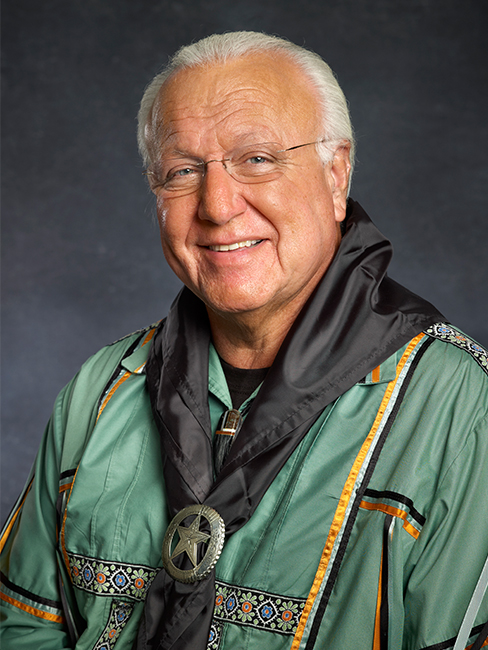
Bozho nikan, (Hello, my friend,)
April is Invasive Plant Pest and Disease Awareness Month, when the United States Department of Agriculture (USDA) encourages everyone to learn about the danger of invasive plant pests and what to do to help combat the problem.
This is an issue that directly impacts our Tribal heritage.
The tragic story of the loss of the Black Ash trees in Michigan and all of the Great Lakes areas is something every Potawatomi should know.
The oldest of our artistic traditions, going back more than 1,000 years, is the weaving of Black Ash baskets. The art is handed down from generation to generation.
Artisans harvest materials for the baskets from Black Ash trees, which are usually found in wet, swampy forests or forests near waterways, with a native range that extends across the north central and northeastern United States into southeastern Canada.
Unfortunately, Black Ash trees are in danger from the emerald ash borer, an invasive wood-boring beetle from Asia. The beetles were found in North America in 2002, and if they continue to spread at the current rate, it’s possible all Black Ash trees could be lost from North American forests by the middle of the century. You can read more about Black Ash trees at cpn.news/BlackAsh.
Already, artists such as the Pidgeon family are having difficulty locating Black Ash trees to use for their baskets. In a 2015 Hownikan article, Steve Pigeon said “There is just dead ash all over Michigan. Down in the Lower Peninsula we’ve only been able to find small ones; there are just not any big ones left.”
Unless the Pidgeon family and other artists in Michigan can find a source, the weaving of Black Ash baskets could end in this generation.
And there are other pests that threaten our traditional plants and those necessary for our food.
In the Great Lakes region, efforts are being made to restore the growth of mnomen (wild rice). However, the rice is endangered not just by human activity and climate change, which brings rising temperatures and volatile weather, but also by the invasive Eurasian watermilfoil, which grows in large mats and shades native plants like wild rice, hindering their growth. An invasive macroalga called starry stonewort also threatens wild rice beds. You can read more about the threats to wild rice at cpn.news/wildrice.
It will take an effort by every person on our continent to stop the spread of these invasive foreign species. Visit the USDA website, HungryPests.com, to learn more about what dangers these pests create and how you can help stop them.
Thank you for the honor of serving as your Tribal Chairman.
Megwetch (Thank you),
John “Rocky” Barrett | Geweoge (He Leads Them Home) | Tribal Chairman
Linda Capps
Vice-Chairman
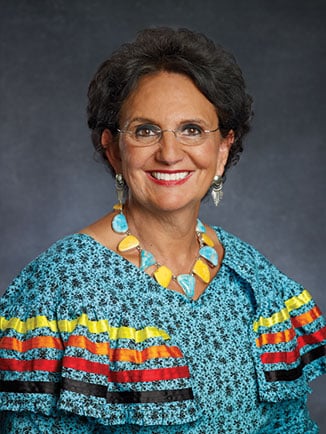
Bozho (Hello),
The Citizen Potawatomi Naton (CPN) Directors and Managers need to be commended for the continuing training that is conducted at CPN. Recently there has been a focus on active shooter training, which is of great importance. It has been a few years since we have had a wide-spread emphasis on this training. I appreciate Richard Brown, Director of Human Resources, for the planning that has gone into the training. Also, CPN Police Department has been instrumental in the training too.
The FBI has produced the training film Run. Hide. Fight., which can be viewed on YouTube. This training video demonstrates the three tactics you can use to keep yourself and others safe during an active shooter attack — run, hide, and fight. Learning these principles now will prepare and empower you to put them into practice — and survive — should the unthinkable occur. It is often shown during active shooter training . It is a good reminder for all people in public places to be aware.
CPN employees have also had the option to attend human trafficking awareness training during March. Human trafficking, a human rights violation, is a deeply rooted issue that affects millions of people worldwide. Women and girls are especially vulnerable. It is often described as modern-day slavery, involving the recruitment, transportation and exploitation of individuals, primarily for forced labor or sexual exploitation purposes. Human trafficking goes largely unnoticed, hidden within plain sight, making it crucial to raise awareness and educate society about its existence and the steps we can take to combat it.
Tiffany Barrett’s House of Hope program brought the training to CPN employees. There is a National Human Trafficking Hotline that connects people at risk to support services that can help them stay safe. The number is: 1-888-373-7888 or text: 233733 (BEFREE). There is also Live Chat: TTY: 711. Human Trafficking awareness training is good for our police officers, casino employees, hotel employees, programs dealing with services for children and women, grocery employees, arena employees and administration. It is important to learn that victims of human trafficking can be anyone, regardless of age, gender or socioeconomic background.
The above-mentioned trainings are only two of the numerous on-going training options that our employees are exposed to on a regular basis. Many of our employees have attended personal financial planning and retirement planning offered at CPN. Some training is offered on a “lunch and learn” basis. Our Community Development Corporation (CDC) sometimes holds training sessions at lunchtime. Justin Neely has held Potawatomi language lunch and learn sessions also. All departments with grants must have compliance training. Leadership training is built into CPN’s budget with Kelley Francen’s program, and all employees benefit from her program. Technical training is on-going for employees in many of our trade areas. Information technology, the casinos, the manufacturing facility and the water district all must have technical training from time to time.
I am definitely proud of the quality programs that we offer at CPN. Of course, many of our departments have employees that are required to attend state-wide and national conferences for training. That is to be expected with the oversight of numerous grants, contracts and compacts. The Office of Self Governance (OSG) helps CPN directors manage many of these agreements; therefore, the training for their staff members is often in negotiation format. The director of OSG, Kasie Nichols, has a highly important role to play in her position with CPN.
Spring is evident in Pottawatomie County. Trees are budding out with leaves, flowers are blooming, and even spring showers have been plentiful. May springtime be a true blessing to you and your loved ones.
Migwetch (Thank you),
Linda Capps | Segenakwe (Black Bird Woman) | Vice-Chairman | Work: 405-275-3121 | Cell: 405-650-1238 | lcapps@potawatomi.org
D. Wayne Trousdale
Secretary/Treasurer
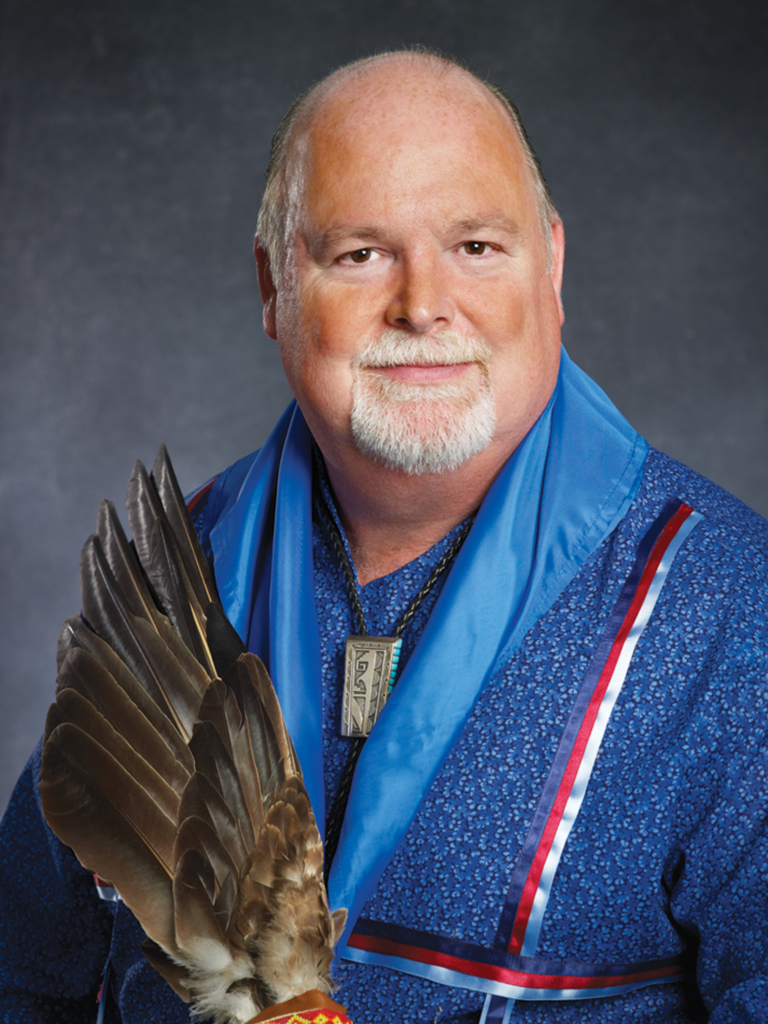
Bozho (Hello),
I hope that everyone is doing well and we are all enjoying good health. In Oklahoma, March is the month that hopefully the transition from winter to spring begins and the cold winds calm down. It seems that virtually every March we are led to believe that winter is over and then we get that one last winter blast which can often catch us, and the newly bloomed tulips, off guard. We will hope for the best this year.
We just had another CPN Legislative meeting this past week and I am reminded of how much your Representatives care about the people that they represent and the condition of the Nation itself. You can be assured that your elected officials truly care about your concerns and your well-being. There is always a lot of information passed on and a lot of lively conversation and debate. If your heart is in the right place, the real motivation in growing and preserving our Nation is because of our people and your elected officials reflect that. If you are not acquainted with your District Representative, I would encourage you to send an email or call and make contact with them. We are all here to serve you in the best way possible. Did you know that each of the Legislative meetings is live on the internet? If you have an interest, it may be informative for you to view the proceedings sometime.
I am happy to report that the financial condition of your Nation sits on a solid foundation and continues to improve. That said, we are not impervious to the challenges that are present in the current economy and the various political happenings. These issues are not new to the Tribe and we constantly adjust our business models to produce the best results for our people. This is greatly assisted by unwavering support and expertise of the Nation’s employees. You would be impressed by the dedication of our folks and their commitment to the Tribe. I am always encouraged to see how our people are involved in the local community and champion so many causes for others. I am humbled when I witness not only the participation of our employees but in many cases their leadership in helping with local causes and helping the less fortunate of our community. This is what good character is all about.
Thank you for your support and remember that you are welcome to reach out to me if you have any questions or concerns; I am here to help. Thank you for allowing me to serve as your Secretary/Treasurer.
Migwetch (Thank you),
D. Wayne Trousdale | Netemgiwse (Hunts First) | Secretary/Treasurer | 405-275-3121 | dtrousdale@potawatomi.org
Alan Melot
District 1
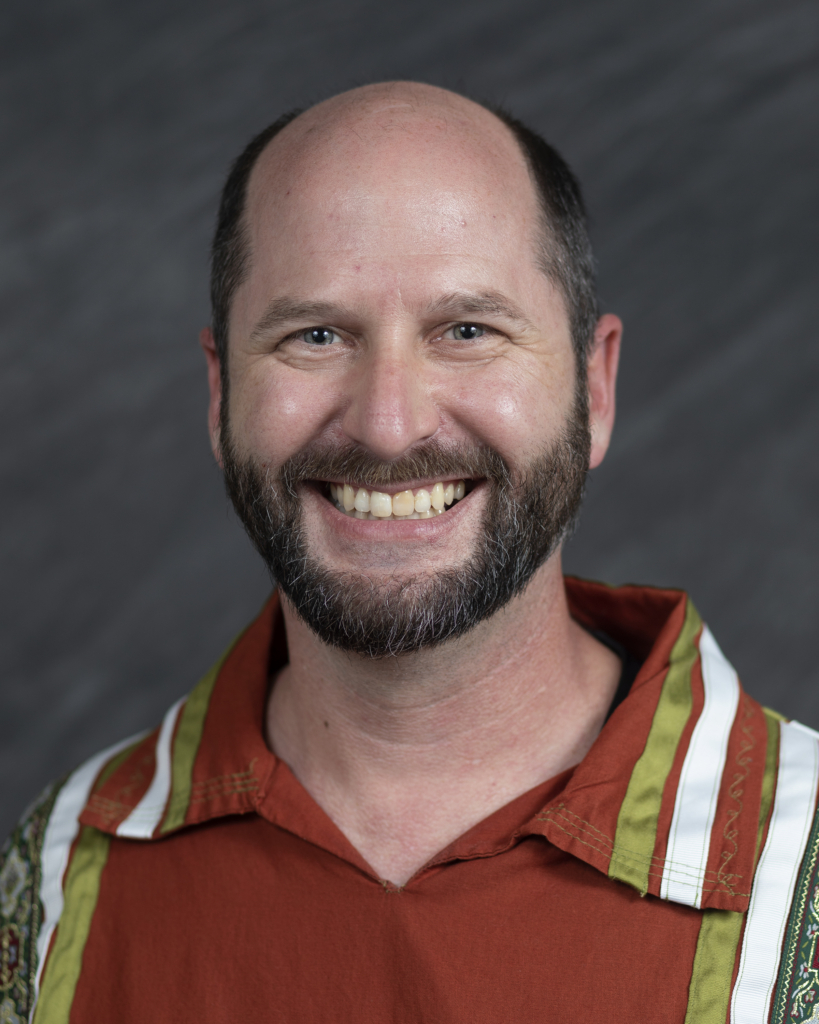
Bozho (Hello)!
Hope you’re all doing well! Just wanted to drop a quick note to say how awesome it’s been getting together for our Zoom craft classes. It’s been a blast learning new skills and creating together, even from a distance. I’m also glad to have met in person in Chicago and will have more about our Chicago meeting in next month’s issue.
Looking ahead, let’s keep that momentum going. We’ve got our own Festival and Reunion to look forward to, and I can’t wait to see all your faces in person. I’m looking forward to catching up, sharing stories and making even more memories together. Stay tuned for more details about Festival that will be shared here in the Hownikan. In the meantime, keep crafting, keep connecting, and keep counting down the days until we can all be together again.
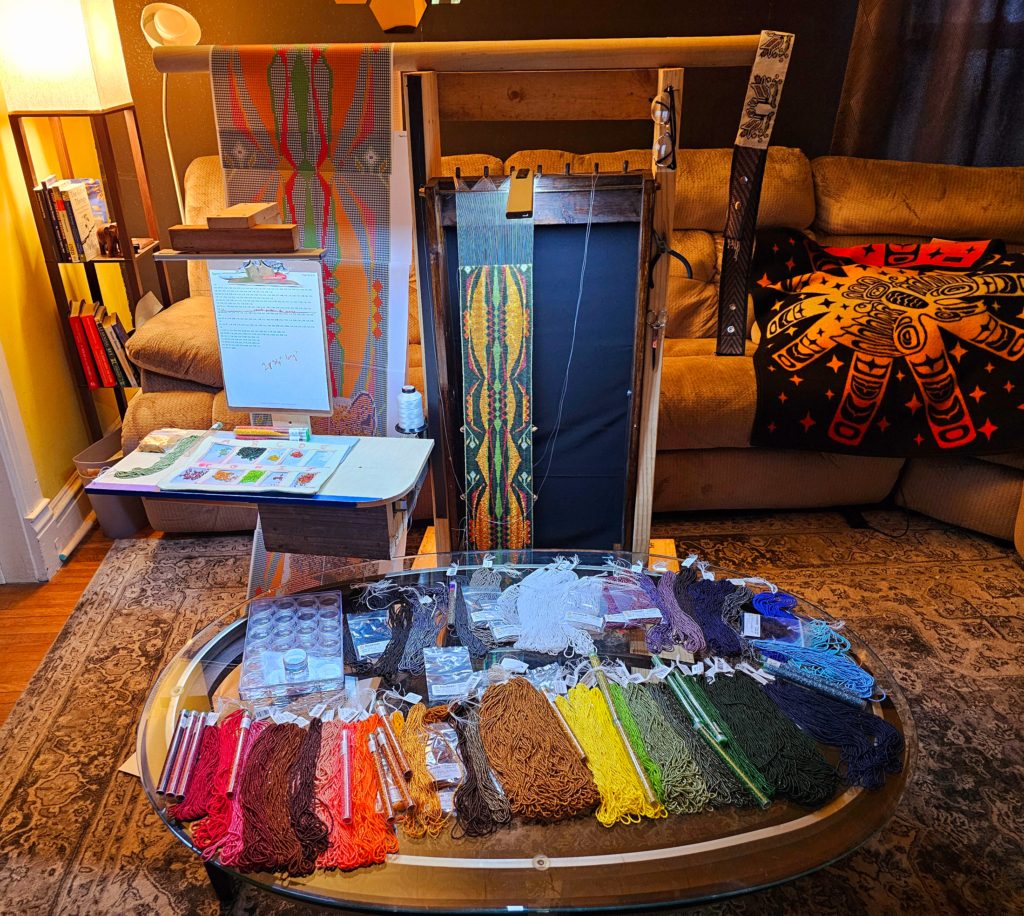
I also want to share some exciting events coming up in our Potawatomi communities that are either in D1 or close. Here are some upcoming gatherings, each offering a special mix of tradition, unity and respect for our roots:
- Prairie Band Potawatomi Nation Powwow: June 7-9, 2024.
- Nottawaseppi Huron Band of the Potawatomi 2024 Annual Powwow: June 22-23.
- Gun Lake, Match-e-be-nash-she-wish Band of Pottawatomi Indians of Michigan Powwow – Sweetgrass Moon Powwow: Weekend after July 4th.
- 2024 Potawatomi Gathering of Nations at the Pokagon Band: July 29 through August 3.
These gatherings aren’t just about celebration — they’re about forging connections and honoring our shared heritage. Whether it’s through intertribal dances, craft exhibitions or traditional feasts, these events bring us closer together, strengthening our bonds and our pride in our community.
Can’t wait to see you all!
As always, shoot me an email if you want to be added to my irregular email updates or add me on Facebook or join our D1 Facebook group. Keep me in your prayers as I keep you in mine.
Bama mine (Later),
Alan Melot | Legislator, District 1 | alan.melot@potawatomi.org | 608 S. Sergeant | Joplin, MO 64801 | 417-312-3307
Eva Marie Carney
District 2
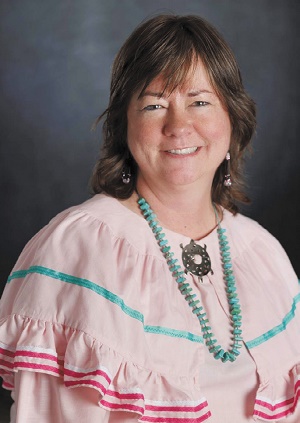
Bozho, nikanek (Hello, friends),
Early April District 1 meeting in Chicago. Legislator Alan Melot kindly invited me to attend his District 1 Meeting in Chicago on April 6. I loved attending District 1 meetings hosted by Legislator Roy Slavin and am looking forward to attending Alan’s meeting.
Call for craft expertise: Fall Feast, Nov. 9, 2024. My husband Alan and I met up in March with District 2’s Bob and Karen Richey to muse about the craft instruction we might share during District 2’s Nov. 9, 2024 Fall Feast. If you have attended the feasts over the last decade-plus, or have read my follow-up “reports,” you know that Bob and Karen have consistently contributed their crafting expertise to our Feast. They’ve guided us in constructing, among other cultural items, medicine bags, drums, drumsticks, parfleche bags and dreamcatchers. We are interested in hearing from folks with crafting expertise and interest in helping plan future District 2 craft projects. Please let me know how you can contribute to our shared knowledge!
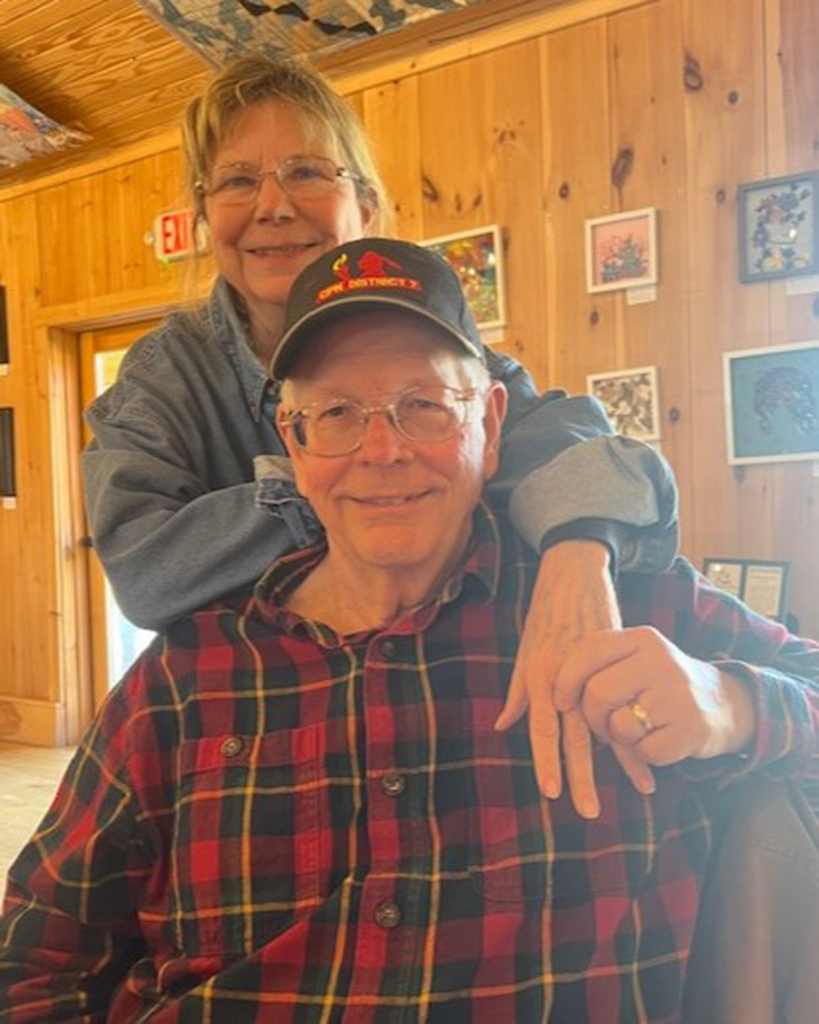
Family news. Kay Kakendasot Mattena recently shared about her current research. Kay is a Ph.D. student in Anthropology at the University of Massachusetts and a graduate research assistant for the Center for Braiding Indigenous Knowledges and Science (cpn.news/CBIKS). (I still “claim” Kay for District 2 as her family home is in Westmoreland, Tennessee.) Kay’s research investigates the evidence for Potawatomi body modifications; she braids archival, archaeological, material culture and community-based research with, by, and for the Potawatomi Nation Tattoo Society I am excited to learn more about Kay’s research as her work progresses. Kay’s artwork appears on the cover of the soon-to-be-released Indigenizing Archaeology: Putting Theory into Practice, which includes a contribution from Kay.
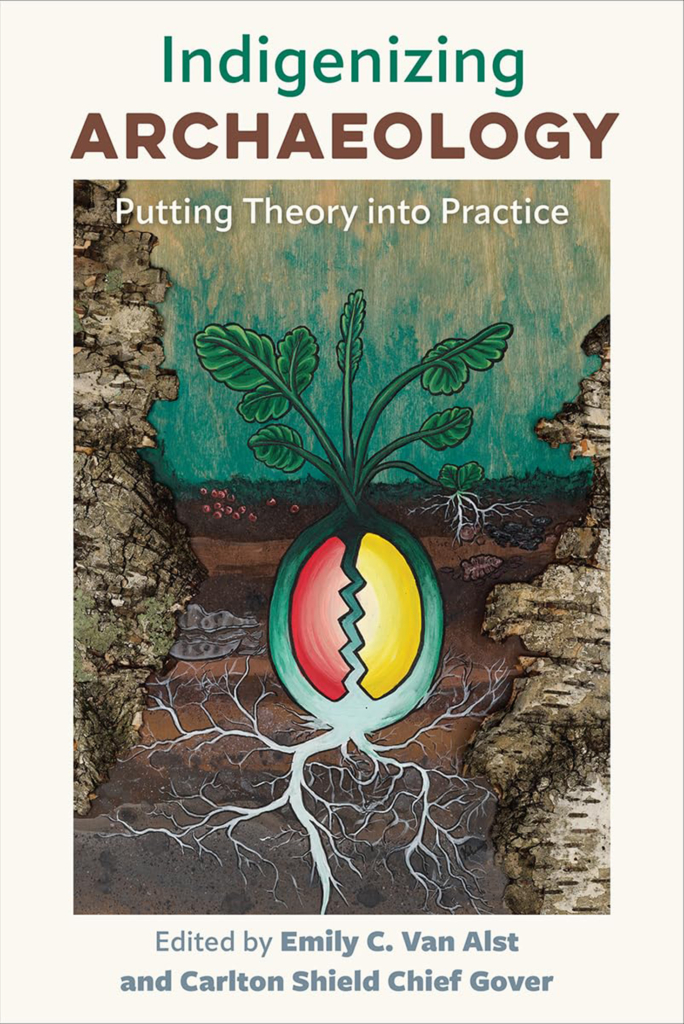
New fiction (book) recommendation. I just started Tommy Orange’s second novel, Wandering Stars. I loved his first book, There There. A lot of other folks did too. It got stellar reviews and acclaim for a first novel. Tommy Orange is Cheyenne and Arapaho. Wandering Stars covers more than a century of Indigenous history and the impact that residential boarding schools have had on the children who attended and survived them, and on generations of their descendants.
I love that the characters in There There reappear in Wandering Stars and find it fascinating to be zoomed back into history, to meet those characters’ ancestors. It’s not an easy read — it starts with the 1864 Sand Creek Massacre, when the U.S. Army slaughtered and mutilated Cheyenne and Arapaho people — and moves on to scenes of abuse at the Carlisle Indian School. I look forward to finishing the book and to understanding the context of this quoted portion of the book, which appeared in a recent review:
Yes, it would be nice if the rest of the country understood that not all of us have our culture of language intact directly because of what happened to our people. How we were systematically wiped out from the outside in and then the inside out, and consistently dehumanized and misrepresented in the media and in educational institutions, but we needed to understand it for ourselves. The extent we made it through.
If you read the book, send me a note with your thoughts about it!
Please keep in touch and share family news when you can.
Migwetch (Thank you),
Eva Marie Carney | Ojindiskwe (Bluebird Woman) | ecarney@potawatomi.org | evamariecarney@gmail.com | evamariecarney.com | PO Box 5595 | Arlington, VA 22205 | Toll Free: 866-961-6988
Bob Whistler
District 3
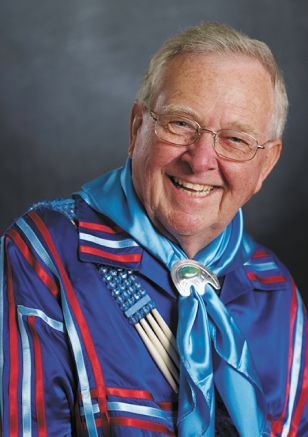
Bozho ginwa (Hello everyone),
Planned District 3 meeting
May 18 | Corpus Christi | lunch provided | RSVP by May 10 to rwhistler@potawatomi.org or call 817-229-6271.
A postcard will be mailed to Tribal members living in the vicinity of this meeting. The postcard will have more details.
Chickasaw Legislative meeting
Legislative Chairman Lisa Johnson-Billy of the Chickasaw Nation invited us to attend their Feb. 16 meeting in Ada, Oklahoma. Elected Representatives Dave Barrett (District 10), Paul Wesselhoft (District 9) and I were able to attend. Their legislature consists of 13 members, and they are all located in the state of Oklahoma. They have their reservation area set up into five districts. They had a very large attendance. We did meet their leader, Governor Anoatubby, after the meeting. Their total tribal membership is around 80,000. We met with Legislative Chairman Johnson and another member of the legislature for lunch and discussed the differences in their constitutional makeup versus ours, and I found it very interesting. One major difference is that they do not have absentee voting. You must reside in Oklahoma to vote. During the meeting, they had three resolutions which were read and voted upon. They had very little discussion. Whereas at our meetings we do get into some very detailed discussion in our quarterly meetings. When I asked about this variance, they advised that with their committee setup, each resolution has been reviewed three or four times. I am attaching a photo taken of all that were in attendance.
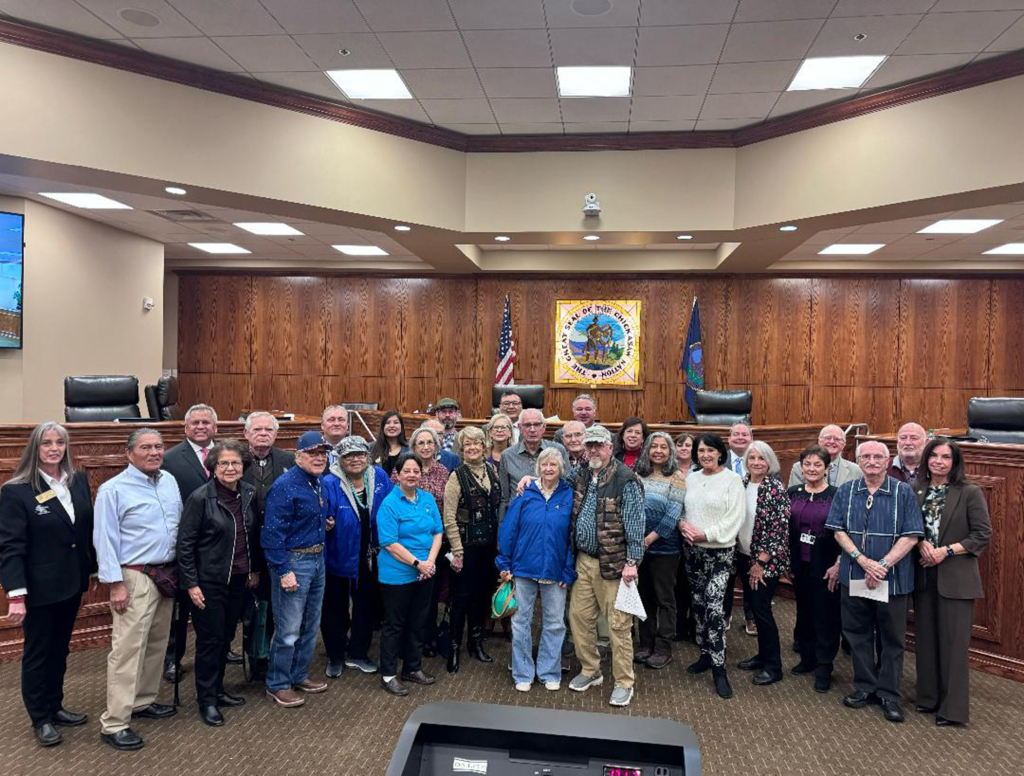
UTA POWWOW March 2
I attended the University of Texas-Arlington powwow in Arlington, Texas, and had the pleasure of meeting several District 3 Tribal members there. It was a wonderful day and the turnout was very large. My main point in mentioning this event is that, at Grand Entry, they had added a new member to their color guard group. The color guard group had the usual U.S. flag, Texas flag, a tribal flag and the MIA flag. The new member was a female in full regalia, and she was carrying a long red dress as a banner on a long silver pole. This new member was there to recognize the MMIW (Murdered Missing Indigenous Women and others). Grand entry leader is Potawatomi Carl Kurtz, carrying the U.S. flag, and you can see the young tribal female carrying the memorable red dress. I thought this was wonderful and I will ask Chairman Barrett if we might add this to our Grand Entry in the future. Attached is a photo of the Grand Entry.
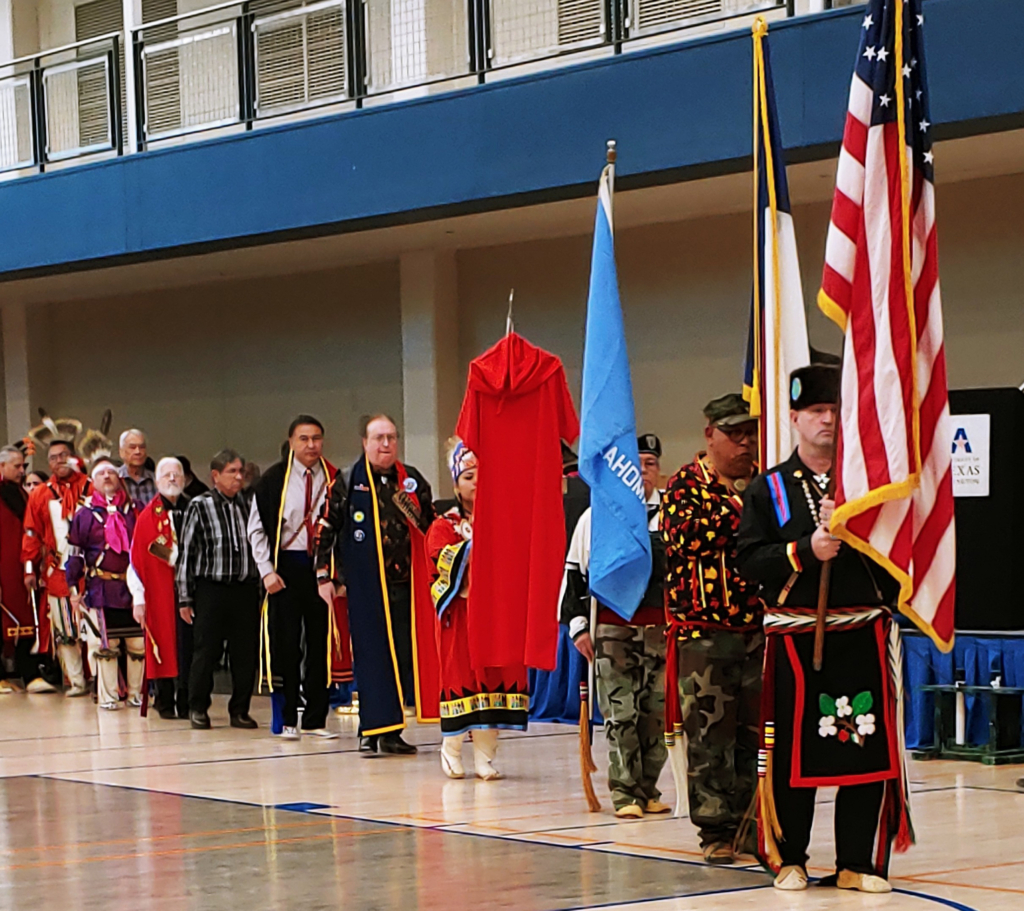
I thank each of you for allowing me to represent you in District 3. If you have any questions where I may be of help, please either call or email me.
Nagech (Later),
Bob Whistler | Bmashi (He Soars) | rwhistler@potawatomi.org | cpn3legislator@yahoo.com | 1516 Wimberly Ct. | Bedford, TX 76021 | 817-229-6271 | cpndistrict3.com
Jon Boursaw
District 4
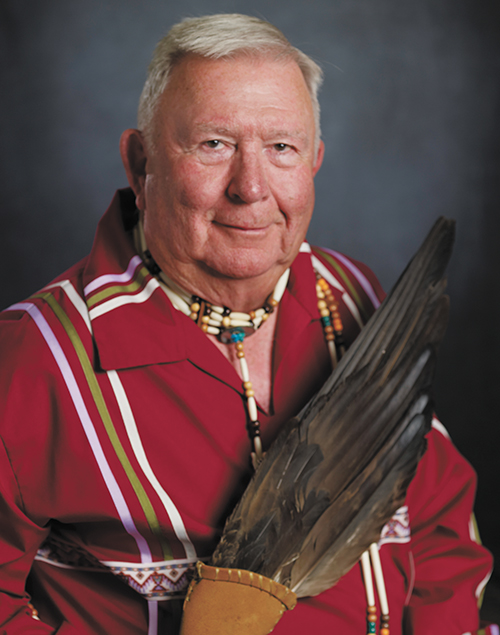
A few reminders of what is available to CPN members
Affordable Rental Housing in Rossville: The Tribe has 10 rental duplexes (20 units) in Rossville, Kansas, for CPN Elders and physically handicapped members. At the time this article was written there were a few units available, but that could have changed quickly.
- All units are two bedrooms.
- No pets are allowed in the Rossville units.
- Units are furnished with washer and dryers, stove, and refrigerator.
- Rent will be based on all incomes received.
- Units are located near the CPN Community Center in Rossville.
Applicants:
- Must be 60 years of age.
- Must qualify as a low-income family whose income does not exceed 80% of the median income.
- Be an enrolled member of a federally recognized Native American tribe.
- And/or family members listed on the application CANNOT have been convicted of a felony or found guilty or criminally liable for breaching fiduciary or contractual duty to the Tribe.
For more information on availability or submission of an application contact the following:
CPN Rossville Housing Office: 785-584-6401
Or the CPN Housing Office in Shawnee, OK: 405-273-2833
CPN Mail Order Pharmacy: I’m still amazed that not all of our CPN Elders are aware of this program. This NO COST program is available to CPN members over 63 years of age and CPN members on Social Security disability. These CPN members must live outside Pottawatomie County, Oklahoma, to be eligible. The formulary is very extensive and is updated frequently. Individuals simply need to register with the CPN Mail Order Pharmacy in Shawnee, Oklahoma, and then have their pharmacy prescriptions sent there. Both Tracy Kinderknecht, our RN in Rossville, and I have the registration packets, including the formulary, available. I have been using this amazing Tribal benefit for several years and have never had a problem. For renewals you just call into the Mail Order Pharmacy and within a very few days it is in your mailbox. The registration packet is also available online at cpn.news/health. You can also contact Dakota Paxon, DPH, Pharmacist in Charge, at 866-900-5236 for more information.
CPN Health Aid Program: CPN Health Aid Program helps Tribal members purchase glasses, hearing aids, dentures and other medical devices. All Tribal members born on or before Dec. 31, 1976, are eligible for the CPN Health Aid Program. The Health Aid Program funds can be used to purchase prosthetic devices, glasses, hearing aids, dentures, partials, crowns, wheelchairs, mobile chairs, CPAP machines, prescription sunglasses, contacts, and mobile chair lifts and ramps for vehicles. Please remember the health aid program pays 75 percent up to $750, with the exception of eyewear. Eyewear is covered up to $250 per year. There is a limit of $750 per year. The Health Aid Program application and additional information can be found at cpn.news/health. If you have any questions, you can also contact Program Director Amber Brewer at arbrewer@potawatomi.org, or at 405-964-4025.
Upcoming CPN Elders’ Potlucks
Dates for the next two Elder Potlucks held in Rossville at noon are:
May 10 | Roast Beef, w/mashed potatoes & gravy | RSVP by the 7th
Bring your favorite side dish or dessert. Please RSVP to Tracy at 785-584-6171.
Contact Information
If you are not receiving emails from me, it is because I do not have your current email address or what I have is incorrect. All you need to do is email me your email address.
Megwetch (Thank you),
Jon Boursaw | Wetase Mkoh (Brave Bear) | jon.boursaw@potawatomi.org | 785-608-1982 | 2007 SW Gage Blvd. | Topeka, KS 66604 | Office Hours: Tuesday 9-11 a.m. | Thursdays 3-5 p.m. | Other times as requested
Gene Lambert
District 5
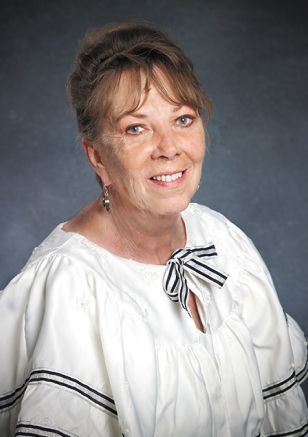
Good day to you all,
It is amazing what you can learn if you just take the time.
We are talking about after the world of education in terms of a classroom. The learning at that point has just begun.
There was always a saying as I was growing up “You know you have arrived when you realize you don’t know a thing.” Every time I think I’ve got it, the ignorance shines through. So much to see, learn and experience. As long as you are here, that will be the case. Learn to love it. It can be exciting learning what the paintbrush of life presents.
Keep stretching for knowledge.
One of the things I didn’t know yesterday was that we have our first Native American astronaut, Dr. John Herrington from Oklahoma and a member of the Chickasaw Nation.
Dr. John Herrington flew over 3,000 hours as a naval pilot, which led him to the 13-day trip in space.
Honoring his heritage, he traveled with a flute and feathers on his first flight. It really did not comment on if he left the flute and feathers or carried them to acknowledge his ancestors.
John attended the University of Colorado, earning a bachelor’s degree in applied mathematics. Furthering his education, Dr. Herrington earned a master’s degree in aeronautical engineering from Naval Postgraduate School in 1995.
NASA decided, or I should say, chose Dr. Herrington for the next astronaut training class out of several thousand applicants. He then reported to Lyndon B. Johnson Space Center in 1996.
The astronaut was married to Debra Ann Farmer and they had two daughters. He grew up with his sister, Jennifer D. Monshaugen, from Texas.
The shuttle carrying our first Native American astronaut was called the Endeavour. The flight was logged as the 16th shuttle mission to visit the space station Nov. 23 through Dec. 7, 2022.
Dr. John Herrington was the first Native American to walk in space. He logged over 330 hours in space and said, “My ancestors have given me the opportunity to walk the earth and fly above.”
I am not repeating myself here. Not everyone boarding a space shuttle had the gift of walking in space. We can all remember the shuttle that never arrived and the dedicated lives that were lost. There were others that never left the ground.
Maybe some of you will remember the astronauts who were stranded on the space station and the need to rescue them.
Not nearly as grand a statement by my great-grandfather saying, “My life has taken me from covered wagons to jets in the air.”
Regardless of the generations mentioned, these are all miracles on steroids in my little world.
As I understand it, Dr. Herrington has spent many years traveling and inspiring the young to go into programs of math and science.
Young people of today can attend a space camp from the ages of 9 years old to 18.
For the fortunate who have been invited, there is an Advanced Space Academy. It is by invitation only for ages 17 to 18. This has also become a prerequisite for future space training programs.
NASA also has a NASA Kids club website where you can go to develop some of the various skills required for further education. Check it out…I am!
I hope you found this interesting and perhaps some of your children or you have an interest. Story is….it isn’t out of reach.
Meantime, loving you all here on earth,
Gene Lambert (Eunice Imogene Lambert) | Butterfly Woman | glambert@potawatomi.org | 270 E Hunt Highway Ste 229 | San Tan Valley, AZ 85143 | Cell: 480-228-6569 | Office: 480-668-0509
Rande K. Payne
District 6
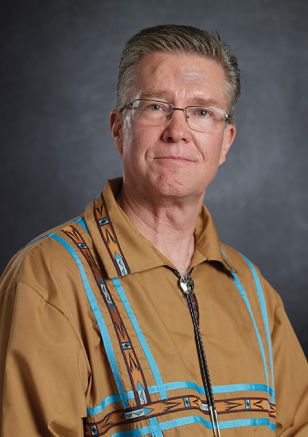
Bozho Nikanek (Hello friends),
Podcasts are everywhere these days vying for our attention. I have a few I listen to. They are mostly motivational. Mel Robbins and Rob Dial are a couple of my favorites. For entertainment with historical value, I have come to enjoy two called Legends of the Old West and Infamous America produced by Black Barrel Media.
Before the movie Killers of the Flower Moon was released last fall, Infamous America did a six-part podcast called The Osage Murders in the fall of 2022. In graphic detail, the podcast tells the story Killers of the Flower Moon was based on. I was totally unaware of the travesty suffered by the Osage Nation. The crimes were appalling, and the injustice was just as bad.
If you haven’t seen the movie, I would recommend listening to the podcast first. The podcast provides details that were left out of the movie. The greed that motivated the crimes is almost unfathomable. Some of the killers went along with the killings simply because the victims were Indian. William Hale portrayed himself as sympathetic and a friend to the Osage people all the while he was plotting to enrich himself at their expense. Unfortunately, as the saying goes, “The more things change, the more things remain the same.”
Lily Gladstone, of Blackfeet and Nez Perce decent, was the first Native American to be nominated for a Best Actress Academy Award for her role as Mollie Kyle Burkhart. She also won a Golden Globe Best Performance by a Female Actor award for her role in the film.
Congratulations to Osage tribal member Scott George for his Academy Award nomination in the Best Original Song category. Wahzhazhe (A Song for My People) was included in the movie toward the end. Mr. George and the Osage Singers performed the song at the Academy Awards Ceremony in March. It’s a beautiful song. The Oscars put it up on YouTube. Mr. George is the housing director at CPN.
The Osage “Reign of Terror” of the 1920s is a story that had to be told and I’m grateful for the film telling it in such a powerful way.
We have a District meeting coming up in Temecula, California, on Saturday, June 1. It will be held at the Temecula Community Center located at 28816 Pujol Street. The meeting starts at 10 a.m. and concludes at 2 p.m. Lunch will be provided. Please plan to join us for a time of Tribal updates, discussion and fellowship. I hope to see you there!
Family Reunion Festival is coming soon. Festival runs from June 28 through 30. Honored families for 2024 are Darling, Hardin, Higbee, Levier, Lewis, Nadeau, Negahnquet, Pambogo and Smith. There are numerous activities for kids and adults alike. One of the most important things you can do is schedule a Festival interview. Interviews are for the purpose of telling your Potawatomi story and preserving it for generations to come. Interviews can be scheduled on your online portal. You are sure to have an enjoyable time and learn about our culture and history should you decide to attend.
Wisdom from the Word: “not giving up meeting together, as some are in the habit of doing, but encouraging one another — and all the more as you see the Day approaching.” Hebrews 10:25
Joganoganan …
Thank you for allowing me to serve as your Representative. Please feel free to contact me with your questions. I hope I can be of assistance to you.
Migwetch (Thank you)! Nagech (Later),
Rande K. Payne | Mnedo Gabo | rande.payne@potawatomi.org | 31150 Road 180 | Visalia, CA 93292-9585 | 559-999-5411
Mark Johnson
District 7
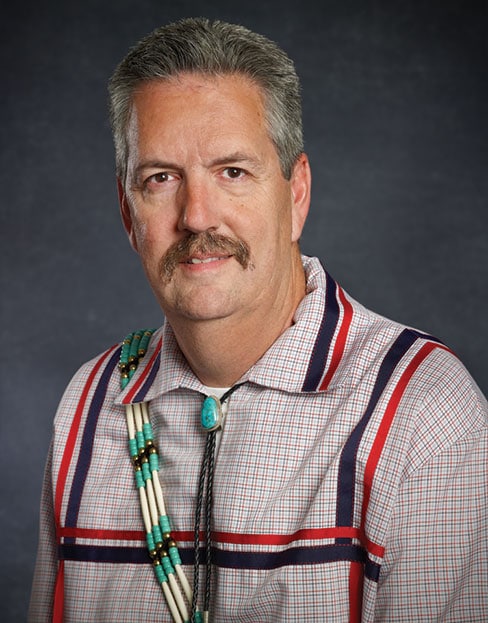
Bozho nikanek (Hello friends),
Some of the many questions that I get are about the benefits that are available to members of the Tribe who live outside of Oklahoma. Below you will find a quick recap of some of the most popular programs that members in District 7 take advantage of.
CPN Care
One of the great benefits available for District 7 members is CPN Care. This benefit is available to you and your family, including non-Native children under 18 years old living with you and non-Native spouses. It will take two to three days for your account to become active, so sign up now, before you need it at 2 a.m. It is no cost to you and your family to join or use. You will be able to talk to a doctor 24/7/365 for General Telemedicine, Life Assistance and Pharmacy Discount Services. Sign up; even if you have good insurance, it may come in handy in the middle of the night when your regular doctor is not available. Learn more at cpn.news/cpncare.
Mail Order Pharmacy
Citizen Potawatomi Nation members over 63 years of age and Citizen Potawatomi Nation members on Social Security disability can learn more at cpn.news/health.
CPN Health Aid Program
All Tribal members born on or before Dec. 31, 1976, are eligible for the CPN Health Aid Program. Program monies are used to purchase prosthetic devices, glasses, hearing aids, dentures, partials, crowns, wheelchairs, mobile chairs, CPAP machines, prescription sunglasses, contacts, and mobile chair lifts and ramps for vehicles. Please remember the health aid program pays 75 percent up to $750 except for eyewear. Eyewear is covered up to $250. There is a limit of $750 per year. Learn more at cpn.news/healthaid.
Home Down Payment & Closing Cost Assistance
This is a one-time-only grant and CPN members residing in the United States may apply. The maximum grant is $2,125. Mobile homes are not eligible. Felons cannot reside at the home. Applications must be submitted at least three weeks prior to closing or no later than 30 days after the closing date. Applications received after the 30-day limit cannot be considered. Learn more at cpn.news/housing.
CPN Tribal Scholarship
The Tribal Scholarship Program provides financial assistance for payment of tuition for Tribal members pursuing undergraduate or graduate degrees. Enrolled CPN tribal members who complete the application by the deadline and meet criteria will be eligible to receive up to $2,000 (full-time status) or $750 (part-time status) per semester. Learn more and apply at portal.potawatomi.org.
Have you made your travel arrangements for the Family Reunion Festival in Shawnee? As a reminder, it will be held again this year from June 28-30. The 2024 Honored Families are Darling, Hardin, Higbee, Levier, Lewis, Nadeau, Negahnquet, Pambogo and Smith. Make your plans now to join us and celebrate our heritage and community. More information can be found on the Tribal website at cpn.news/festival.
Once again, I would like to say what an honor it is to serve you as your District 7 representative. As always, give me a call, and I will be happy to work with you on any questions you may have or provide you with additional information you may need to access Tribal benefits that are available to you. Please also take the time to give me a call or send me an email with your contact information so that I can keep you informed of the happenings within the Nation and district.
Migwetch (Thank you),
Mark Johnson | Wisk Mtek (Strong as a Tree) | 559-351-0078 | mark.johnson@potawatomi.org
Dave Carney
District 8
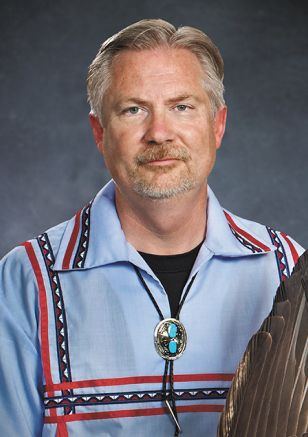
Bozho nikan, (Hello friend),
I hope this edition of the Hownikan finds all in District 8 healthy and doing well.
I am looking forward to seeing Potawatomi family in Oklahoma and at District meetings in 2024.
Don’t forget that the Family Festival (powwow) is June 28 through June 30. Planning on attending? Please jump on airfare and hotel accommodation as soon as possible to avoid disappointment.
As we all know, District 8 covers a very large geographic area of the United States, though the population of each the districts is roughly 2,500 Tribal citizens. Our district extends from the West coast to Minnesota and Iowa in the East and includes the great state of Alaska. In order to visit with the larger populations of Citizen Potawatomi in 2024, I am planning three regional events:
August 17, 2024 — Coeur d’Alene, Idaho — park setting, meal, presentations and prizes
August 18, 2024 — Missoula, Montana — park setting, meal, presentations and prizes
October 19, 2024 — Portland, Oregon — Annual Fall Feast
The mid-summer cookout in Olympia will be taking a year off in 2024 to be revisited in 2025. Another trip to Alaksa is likely for summer of 2025. In the past, we have had some events in Anchorage and Palmer. I would love to have a meeting again in that area, as we have the largest concentration of Tribal citizens, and I would also like to host a gathering in Juneau (named after one of my ancestors, Joe Juneau).
I’ve told the story many times but will briefly relate it here again, because I think it’s fun. Joe was the cousin of Soloman Juneau, who married a Native woman (Josette Vieux) and became the first mayor and postmaster of Milwaukee. Soloman is the most famous Juneau and the one that most relatives (and CPN) point to as the founding father. Joe was a relatively mediocre silver miner who explored much of southeastern Alaska with his partner, Richard Harris, and the aid of their Native American guide, Chief Kowee (Auke tribe). They eventually discovered both gold and silver and founded a settlement originally called Harrisburg.
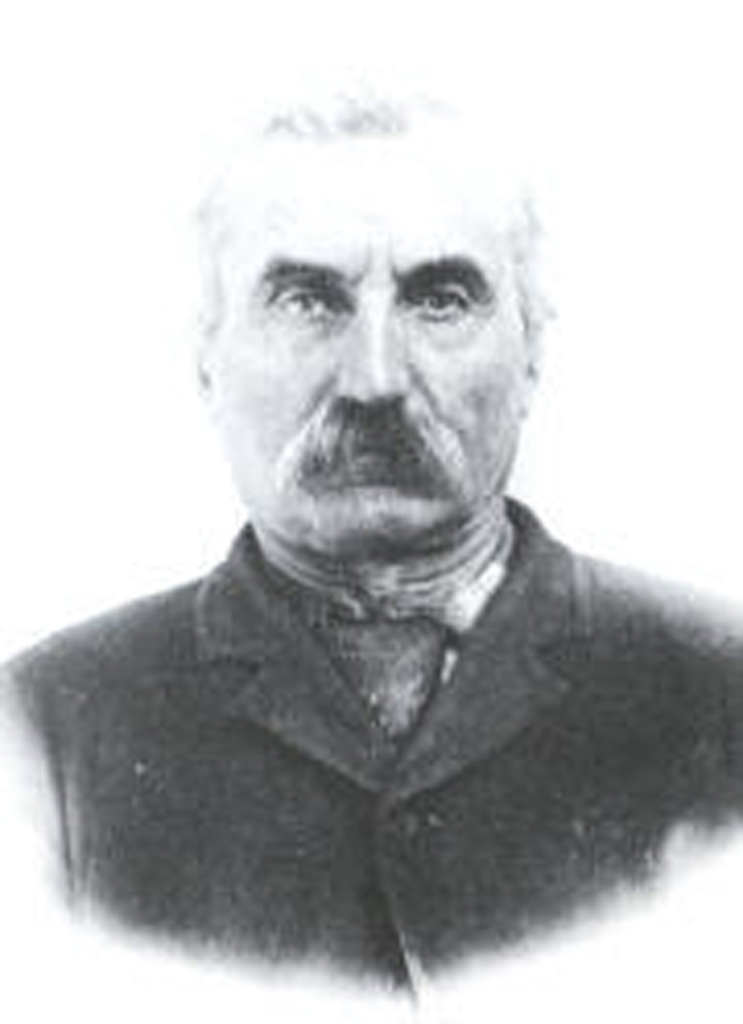
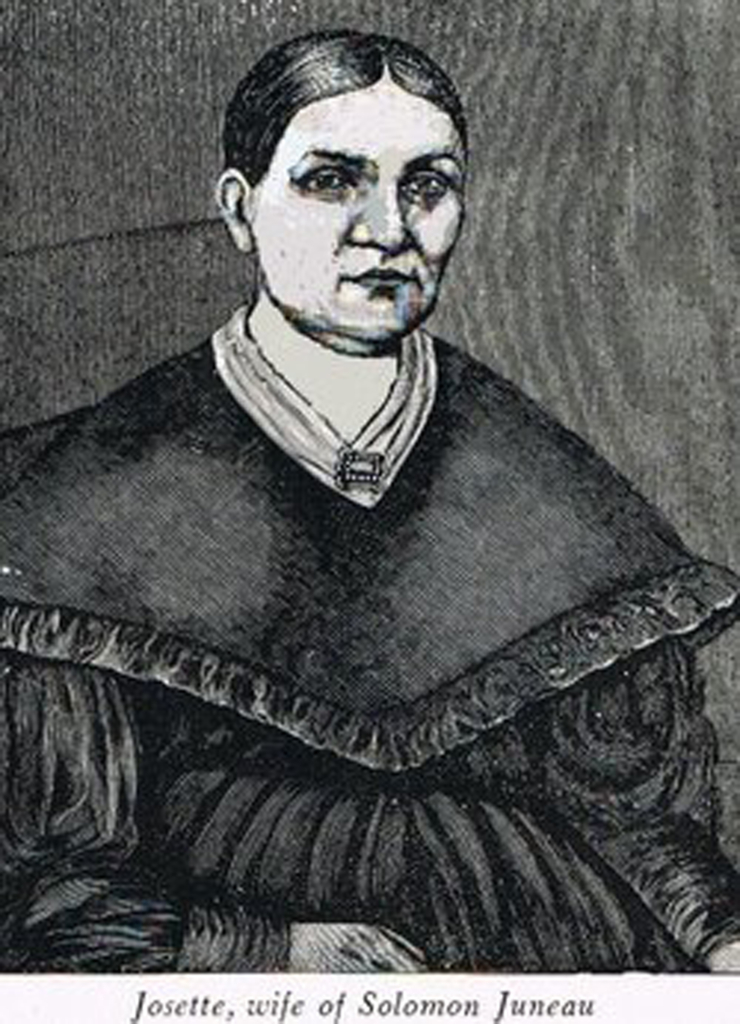
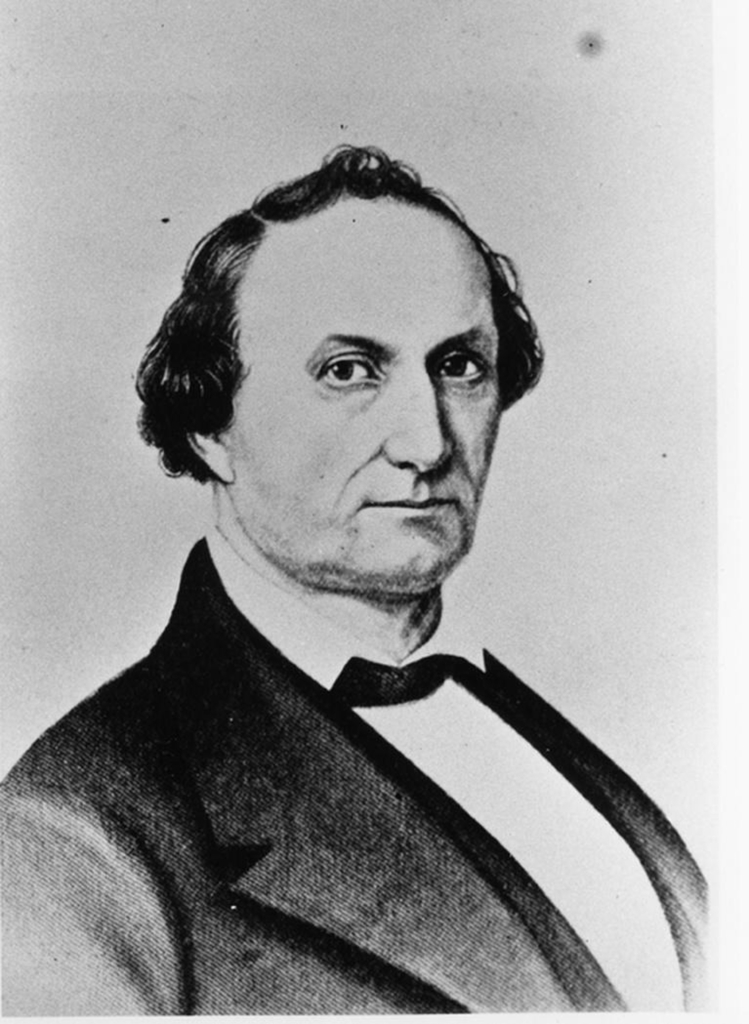
For unknown reasons, there was a decision to rename the settlement. One suggestion was Pilzburg, in honor of the financial backer who bankrolled the operation, as well as a plan to rename it Rockwell after another miner.
Joe Juneau reportedly bought drinks for fellow miners to persuade them to name the city in his honor, and it received its current name at a miners’ meeting on Dec. 14, 1881, at which the name Juneau received 47 of the 72 votes cast, while Harrisburg received 21 votes and Rockwell only four.
I’m not sure if there’s a life lesson here, but a good story none the less.
It is my honor to serve as your Legislator,
Dave Carney | Kagashgi (Raven) | dcarney@potawatomi.org | 360-259-4027
Paul Wesselhöft
District 9
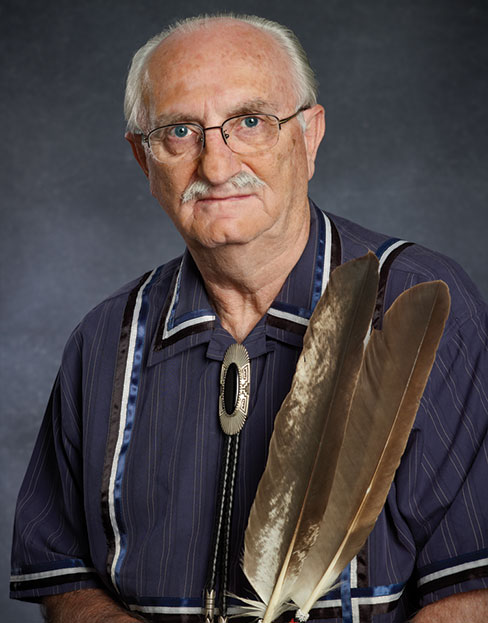
Bozho, nikan (Hello, friend),
UNION
Benjamin Franklin, probably the most important founding father of the United States, gained political insight into unifying the 13 colonies from Native American tribes. He studied how, in the last century of his time, the six Iroquois Nations had organized a confederacy that promoted unity and peace through consensus throughout the Northeastern region of North America.
The 13 colonies were independent of each other and had little communication and involvement. They were connected to England and her seat of power in London, but not to each other.
The Iroquois confederacy is believed to have existed since between 1142 and 1660. Each nation, represented by chiefs in a Grand Council, pledged to maintain peace, cooperation and not to wage war. This inter-tribal quasi-government over a vast area impressed Franklin and he thought, in effect, that if Indians can unite so successfully over such a long period of time, why not white people.
Franklin, the great visionary, began unifying the 13 colonies first by establishing an inter-colony postal system. His various print shops in multiple colonies and his published newspapers also brought the colonies closer together. Like the Iroquois, he proposed and organized a “Grand Council” for the colonies empowering them to make treaties with the Indians, regulate trade, build forts for defense and enact taxes that made inter-colony quasi-government possible.
Slowly, the colonies became less reliant on London and more reliant on each other. Franklin did not have independence or revolution in mind at this time. He simply believed, from the Iroquois example, that the 13 colonies could and should unite in various areas that benefited them together. In his newspaper he drew a snake severed in 13 parts with each part named for a colony. He titled the drawing “Join or Die.”
Benjamin Franklin, the great visionary statesman, became a major founding father of the Declaration of Independence, the revolution and formation of the United States of America. His early inspiration came from Native Americans.
Migwetch (Thank you),
Paul Wesselhöft | Naganit (Leader) | reppaul@gmail.com | pwesselhoft@potawatomi.org
Andrew Walters
District 11
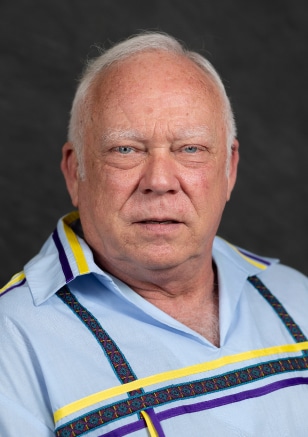
Bozho (Hello),
I grew up in a time when “respect” was something earned. Respect was earned through the display of a compilation of many qualities: honesty, courage, discretion, kindness, intelligence, strength…the list of positive qualities goes on. In today’s world, respect is expected, demanded, no matter what. Our self-worth seems tied to the number of “friends” or “followers” we have on social media and not the cornerstones of an honorable life. For some reason, beyond my understanding, I am supposed to respect someone for no reason other than a fool’s idea that I must. The statement that everyone deserves respect is patently wrong in my world. I don’t respect bullies, thieves, mean people, drug dealers, gang members, bad cops, dishonest lawyers, corrupt politicians, pedophiles, murderers, rapists, connivers, or liars no matter how loudly they shout I should. To have my respect, you must earn it. And I work to earn the respect of those who don’t know me…through my deeds and words…not by my unearned expectations.
The Tribe was founded by folks with the same idea. They didn’t expect anything, but rather worked and suffered to earn the respect and dignity they possessed. In today’s world, the Tribal elders seem to have lost the respect of younger folks. We see it every day on Facebook and other social media. Older people’s knowledge is viewed as obsolete rather than foundational in today’s light. We insult our leadership. We are critical of our past. We forget the ideas and struggles that brought us to where we are. We seem content on applying the newest technologies, ideas and fads to alter our past, control our narrative…not to enhance it. Traditions are forgotten, ignored or simply made up.
We must stop for a moment and examine ourselves, as Potawatomi. We must remember that honor and pride was earned by our elders and follow that path. Not just expect someone to respect us for what we are, but rather for who we are…where our heart lies. Do we live an honorable life? Are we compassionate? Do we have beliefs we hold dear? Are we honest? The Gift of the Seven Grandfathers isn’t just a story…it’s a teaching. Love, respect, bravery, truth, honesty, humility and wisdom are the pathways to a better life. We all must follow those teachings. We should look to our elders for guidance. Remember, they’ve already made the mistakes, borne the weight of bad decisions, and suffered through unimaginable difficulties. Their advice and counsel must be respected.
Bami pi (Until later),
Andrew Walters | andrew.walters@potawatomi.org | nibwemko@gmail.com
